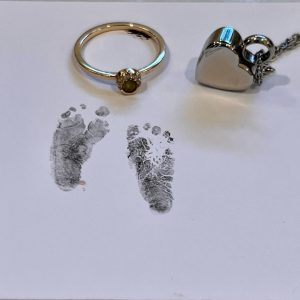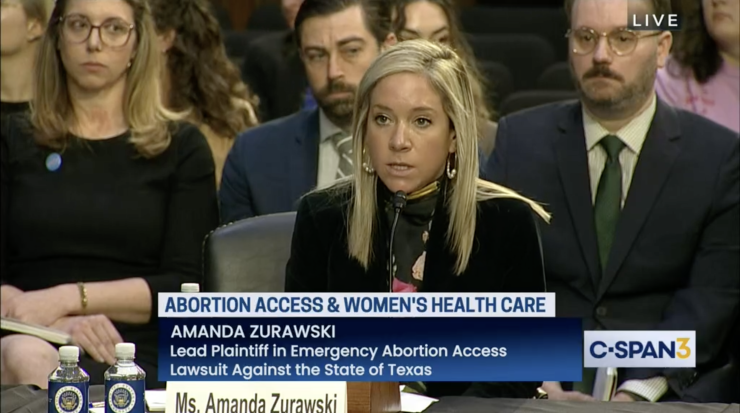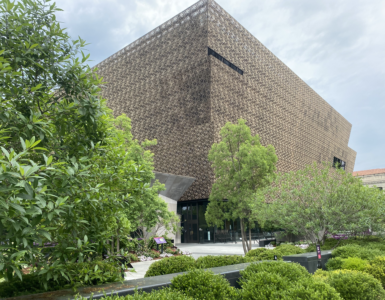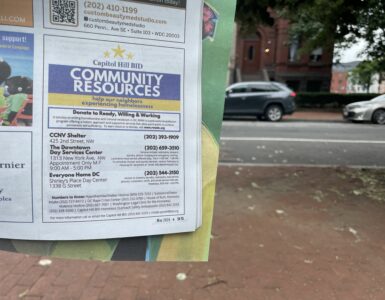Amanda Zurawski, 36, from Austin was 18 weeks pregnant with her daughter she called Willow, when her water broke and her cervix was prematurely dilating. However, Zurawski recalled that her healthcare providers denied her an abortion because she was not sick enough.
Zurawski said that her doctors considered her to be at risk enough to have labor induced only after she slipped into life-threatening septic shock. She recounted that she almost died twice because of a delayed abortion.
“Maybe the world wasn’t ready for you and that’s why we never got to share it,” Zurawski wrote in an Instagram post addressed to her unborn daughter. “After all, look at all that’s been done through you, with your strength, despite you not being next to me at all.”

The Texas Heartbeat Act
Zurawski’s water broke two days before the Texas Heartbeat Act went into effect on Aug. 25, 2022. The law, enacted in May 2021, included a trigger provision that allowed the law to go into effect 30 days after the U.S. Supreme Court overturned Roe v. Wade. The Court did that in Dobbs v. Jackson Women’s Health Organization, which it issued June 26, 2022.
The law prohibits abortions once a fetal heartbeat is detected, except in life-threatening conditions. For Zurawski, a fetal heartbeat was detected and thus an abortion was denied.
Texas set the stage as other red states eyed the model of the newly implemented trigger law. “We were 100%, definitely going to lose the baby, but her heart was still beating,” Zurawski told The Wash.
Zurawski recounted her experience of feeling anger when she was initially told that labor could not be induced. “That would have been considered an illegal abortion since her heart was still beating.”
Today, Zurawski is the lead plaintiff in a lawsuit filed against the state of Texas over its abortion ban with regards to complicated pregnancies. The global legal advocacy group the Center of Reproductive Rights originally filed the lawsuit in March 2023 with Zurawski and several other women.
The total number of patients suing Texas in this case now stands at 20.
Texas counties: abortion bans are not enough
The battle over access to reproductive rights is far from over.
Nowhere is that more clear than in Texas where counties have been passing ordinances that are placing restrictions on using certain roads and highways to get to another state for abortions.
“The intent behind these ordinances is to fear-monger and intimidate,” said Zurawski. “I think what they don’t realize is that we are not going to put up with this.”
Zurawski emphasized that while a 10-hour car drive to the nearest state for an abortion would have been a death sentence for her owing to potential sepsis, the “abortion trafficking” ordinances instilled fear among abortion seekers like herself from receiving abortions.
At the forefront of the structuring of these ordinances are Mark Lee Dickson, a pastor and director for the Right to Life East Texas, and Jonathan Mitchell, former solicitor general and architect of the Texas Senate Bill 8. Opponents coined this as the “bounty-hunter”law because it allows private citizens to bring forward civil claims against those who aid and abet abortions.
The “abortion-trafficking” ordinances are designed after SB 8.

A prime motive of the ordinances is restricting access to the county’s highways to prevent an abortion seeker from traveling to another state, according Dickson who founded the Sanctuary Cities for the Unborn Initiative in the process.
“The ordinance does not penalize the mother of the unborn child,” Dickson told The Wash. “It’s only those who are involved in assisting her in the abortion.”
Dickson said that counties and cities were completely within their rights to look after what happened within their jurisdiction. “If we want to say that our roads cannot be used for this practice, we can pass laws for what happens here in our counties, in our cities.”
Opponents argue that these ordinances are not legal.
On July 14 2023, Mitchell County in Texas was the first county in the U.S to adopt an ordinance that outlawed abortion and “abortion trafficking” within city limits, according to the Sanctuary Cities for the Unborn’s website. Mitchell County did not respond to comment on this story.
Dawson County, the latest addition to the list of counties outlawing “abortion trafficking,” passed an ordinance on Dec. 18 2023, that would bar abortion seekers from using roads that run through the unincorporated area of the county to get to another state to avail abortion care.
“They’re using terms like “abortion trafficking” and want people to believe that there are all these women who are being forced against their will to get an abortion,” said Kristin Trapp, an attorney at Minneapolis-based law firm Best & Flanagan and a researcher for gender, policy and inequalities.
“I have not ever come across any research of that happening, nor can I really think of much of a reason why or how that could happen,” said Trapp. “This is healthcare.”
Dawson County is the fifth county in Texas that approved the “abortion trafficking” ordinance following Lubbock, Cochran, Goliad and Mitchell. The ordinance is currently tabled in the city of Llano. A citizen-led petition to enact a ban is gaining support in the city of Amarillo.
Abortion trafficking : ‘A great evil’
Confusion about the enforceability of these ordinances persists. Even among the commissioners who signed them into existence.
The Mitchell County ordinance states that Mitchell County Commissioners’ Court found that Texans were affected by abortion services across the Texas and New Mexico border and were “being sent to Texas for our counties and cities to deal with the aftermath.”
Dennis Jones, one of the four commissioners at Mitchell County who voted for the resolution, told Rolling Stone in September 2023 that the ordinances were “unenforceable” and “unnecessary.”
Jones declined to comment for this story. However, to Rolling Stone, Jones mirrored what Dickson said about keeping “abortion clinics out of counties.”
According to Rolling Stone, Jones said that while the initial ordinance aimed at keeping abortion clinics out of county limits, the restrictions imposed on highway travel was an “afterthought.”
Dickson told The Wash that the life of a child was worth protecting, and mothers were meant to protect their children.
“What about my life?,” said Zurawski. “Is my life worth throwing away?”
Zurawski said that these laws have thrown away the lives of the children that she may never be able to have due to permanent damage to her reproductive organs.
Dickson equated “abortion trafficking” to sex trafficking, considering it on the same wavelength and labeled it to be “a great evil.”
“We are doing everything we can to end abortion, not just in Texas, but also the United States of America,” said Dickson.
How private citizens become so-called bounty hunters
The ordinances are modeled after the abortion “bounty” law, Texas Senate Bill 8 that states that the enforcement of these ordinances relies on private citizens to sue those aiding abortion seekers to cross state-lines.
While the ordinances can only be enforced exclusively through private civil lawsuits, state district court judge David Peeples ruled in 2021 that private citizen enforcement mechanisms were in violation of Texas state laws and was thus deemed unconstitutional.
Trapp said that it is a constitutional requirement to have standing to prove that you’ve been injured to be qualified as a plaintiff to sue.
Trapp said that citizens suing people aiding abortions without proof of injury or harm is attenuated. “You’re basically saying you don’t have to establish standing and that’s the unconstitutional piece.”
The private enforcement mechanism dismisses the idea of standing which questions the constitutionality of the ordinances as a whole, according to Trapp.
Abortion rights activists are fighting back
Republican lawmakers did not stop with criminalizing abortion access.
Texas Attorney General Ken Paxton targeted individuals and organizations who aided and abetted abortion seekers with logistical support for interstate travel.
Groups funding abortion were now targeted.
Fund Texas Choice, an abortion fund that helps pregnant people receive abortion care, with eight other support funds, responded by filing a lawsuit against Paxton in 2022 to continue to provide logistical support to Texans who wished to travel to another state to avail abortions.
U.S District Judge Robert Pitman issued an injunction to protect abortion funds from criminalization.
Heather Allison, a public policy expert at Fund Texas Choice, said that Mitchell put in requests with the organization asking for information about clients and those helping the clients with abortions.
“They are not entitled to this information, because helping someone seeking abortion out of state is still legal,” emphasized Allison. “That’s really important to know.”
At the same time, legislative bodies like the Texas Freedom Caucus have been targeting those aiding abortions too.
The lawsuit by Fund Texas Choice also came in response to threats made by the Texas Freedom Caucus to Dallas-based law firm Sidley Austin. The law firm reimbursed travel costs for employees who traveled for out-of-state abortions.
The Texas Freedom Caucus is a far-right congressional caucus in the Texas House of Representatives. In June 2022, the Texas Freedom Caucus issued a letter to Sidley Austin informing the firm of “the consequences that you and your colleagues will face for these actions.”
Fund Texas Choice continues to endure attacks from anti-abortion activists according to Allison.
“They are engaging in harassing litigation tactics to try and stop us from helping people seek abortions out of state,” said Allison. “But we are continuing to help people get out of state and in compliance with the abortion bans and with our court order.”
The fight for reproductive justice continues
“More than a year out,and I still get insanely angry thinking about it,” said Zurawski.
Zurawski said that with the anger and the frustration, she feels motivated to bring about change. “I’m determined, I’m very determined.”
The Supreme Court of Texas on Nov. 28 heard oral arguments on the initial 2023 state’s appeal of the district court ruling from Zurawski and the 19 other plaintiffs on abortion laws and their role with complicated pregnancies.
On the same day as the Supreme Court heard arguments in Zurawski v. Texas, Kate Cox, a 31-year old Dallas woman, received news that her child was diagnosed with a fatal chromosomal anomaly.
Cox proceeded to file a lawsuit to terminate her pregnancy at 20 weeks. However, Paxton classified Cox’s situation as not life-threatening.
Paxton said that if Cox intervened in her pregnancy in any way, her physician would be charged with first degree felony charges.
Cox left Texas to seek an abortion elsewhere.
“Whether it’s through this lawsuit or something else, I won’t stop until either something changes or I die trying,” Zurawski told The Wash.















Add comment